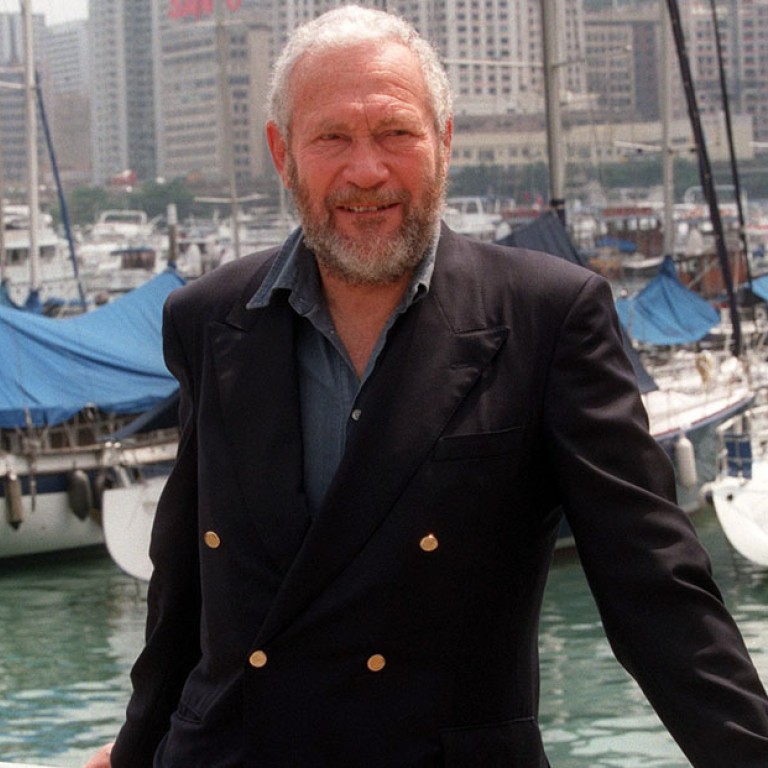
Soccer captivates like no other sport
There are some who may not understand its attraction, but in most of the world the success of the game has been phenomenal
As we celebrate the start of the English Premier League season this weekend, do please spare a sympathetic thought for salty seadog, Robin Knox-Johnston.
In 1968, Knox-Johnston, 74, was (if you are not in the know) the first man to complete a single-handed, non-stop circumnavigation of the globe.
He is up there with Magellan and Cheung Chau's San-San in the sailing pantheon, championing as he now does various ocean-going challenges.
But this most successful of seafarers is in a gale-force flap with soccer and its dominance on our TV screens, newspapers, radio waves, websites and general day-to-day existence.
He claimed this week the British mainstream media was failing to give sailing sufficient coverage, and what air-time was afforded promoted his maritime sport as "elitist".
He accused us sport-loving islanders of "sea blindness" in a savage letter to , the magazine of preference for those who like to splice the main brace or fly a spinnaker instead of watching our beloved game at weekends.
He pointed to last weekend's Charity Shield as a prime example.
As 350 yachts set sail from the Isle of Wight at the start of the gruelling 88-year-old Fastnet race (an annual and often death-defying voyage to a remote lump of Atlantic rock and back), the media duly ignored the derring-do on the foaming brine and instead focused on Man Utd putting Wigan to the sword on Wembley's calm turf.
Sailing is one of the "largest and most successful sports in the country" and the dearth of coverage was tantamount to mutinous treason, Knox-Johnston implied in his withering fire. Sailing is open to all, he declared, "whether a bricklayer or duke".
Knox-Johnston is among a growing chorus of sporting heroes and cultural commentators who believe soccer has become too big for its boots and is vulgarly monopolising our sporting and public spheres.
The coverage smothers minority disciplines, threatening to turn them into museum exhibits, goes their argument. And just why do so many watch soccer, they wonder aghast.
After all, never mind the Rolex-attired yachties down on their 50-footers sipping gin-fizzes from lead crystal tumblers under the mizzen.
Surely soccer has become elitist and boorish, what with its petulant multi-millionaire players, shady agents and all its inherent hangers-on, a motley crew who loudly ooze reversed snobbery and tattooed ignorance by the bucket load.
Indeed, ticket prices and match-day travel nudge annually toward eye-watering and unaffordable levels for us ever-squeezed fans.
A once innocent father-and-son day out with scarves dangling from necks and programmes stuffed into rear pockets, cold pies and tepid beverages balanced in hands, will cost you as much as a champagne high tea at the Ritz,
Then there's Fifa's well-documented palm-greasing and the general gross management of many continental and domestic associations to further illustrate a sport riddled with rottenness.
From China to Benin, Rio to Russia, the people who run the game (most middle-aged or older men) act like cut-throat pirates, and we fans treated as below-decks ballast.
This sail-boat owner sympathises with Knox-Johnston.
Why indeed follow an evidently noxious sport instead of waving off a majestic fleet of environmentally sound canvas?
Yet despite this weekend's shipping forecast posting fair-weather, I will, like many Southampton fans, turn my back on water that made our seafaring city and instead catch a cramped, early morning train inland to Birmingham for Saints' season opener against West Brom at the Hawthorns.
Because despite all its tawdry modern trappings and asinine behaviour, soccer captivates hearts and minds like no other sport.
In China, it is the most watched sport, in Africa it is the most watched and most played game.
In Europe, Eurasia, South America and increasingly so in the United States, more people play or watch, or both, in ever greater numbers.
Today, on the ref's whistle, soccer will, much to Knox-Johnston's annoyance, dominate and hold court until next May. As one commentator put it, soccer is the most astonishing cultural success story of the modern era.
There is blanket coverage because the demand is insatiable. No other sport comes close for global appeal and entertainment revenue generation.
Even those disciplines given lavish marketing makeovers to make them more appealing fail to challenge its pre-eminence.
Annoyingly for the critics but fascinating to supporters, psychologists and sociologists, is that no one can properly explain why soccer conquers all comers.
Its simplicity, perhaps. Very few of the rules of soccer have changed since the association conception 150 years ago.
We do have new goal-line technology this season but the pitches, goal posts and balls remain just so.
Each game is 90 minutes long, consisting of two halves, and this has always been thus.
Players' strength and skills have developed into superior athleticism. But it's the same forwards, midfielders, defenders and goalkeeper on the pitch.
Soccer is addictive and fun to watch because it induces all our emotions from adulation, anger, jubilation and tribalism. The "friendly" between Scotland and England mid-week is a high-tempo case in point.
Soccer is a conversation starter and stopper and unites strangers.
Unlike other sports, it can be played anywhere and cheaply.
And where and whenever a ball is kicked and a goal scored, you can bet your bottom entertainment dollar a fantasy is being lived out and the drudgery and turbulence of daily life momentarily forgotten.
Few among us failed to live the dream with England debutant and match winner Rickie Lambert this week.
Critics of soccer's dominance like Knox-Johnson miss its distilled essence, which springs eternal in spite of its afflictions.
That's why today's EPL kick off is not just a domestic occasion but a world event, creating a bigger splash in the lives of hundreds of millions than a romantically remote, wave-smothered, desolate Atlantic outcrop.

